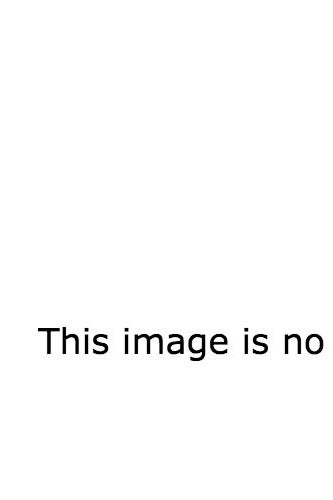
I was the worst diary keeper of all time: I let other people read mine.
This took root in the third grade, when our teacher read us a book from the Dear America series. It was one of those jewel-colored books with gold-edged pages and a ribbon for a bookmark, and the premise of the series was that these were the diaries of kids growing up at various historical moments. The one Mr. Giles had chosen was from the perspective of a girl coming to America on the Mayflower, or a ship like it; her name was Remember Patience Whipple (good DJ name if you are in the market for one) and I didn't realize that the book wasn't 100% real.
It's embarrassing now and it was then, too, when some of the boys in my class found out. I tried to argue back, defiant that of course here was this manuscript written by a kid our age nearly 400 years ago, but the more I spluttered the more I understood how silly that was. Soon someone else did something that attracted the boys' teasing (fell during kickball, got a perfect score on a spelling test) and they left me alone. But I was deeply disappointed. I'd wanted so badly for the book to be a direct missive from someone who seemed a lot like me — smart, clumsy, never quite fitting in right — and finding out that it wasn't felt like losing a friend.
I kept on reading books written like diaries though. I read more of Dear America on my own, then an entire series called Royal Diaries meant to be from the point of view of various princesses (a lot of these books left off abruptly, since so many of their real-world counterparts — Cleopatra, Marie Antoinette — were murdered). I liked these personal, intimate glimpses into the past, even if they were mostly written by a nice lady from Indianapolis named Kathryn Lasky. I liked that these girls (they were always girls, I wasn't remotely interested in what historical boys had to say) were opinionated, and articulate, and most of all that their inner lives were deemed important enough to merit a book of their own. This was an acceptable form of communication, I discovered; it meant that "here I am, here is what I see, maybe you can learn from it too" was a valuable way to make a mark on the world.


They made her way hotter for the 2010 printing. Ugh.
This sense was only confirmed when I started reading diary novels about girls living in the present day. I think Absolutely Normal Chaos by Sharon Creech was the first, followed closely by Meg Cabot's Princess Diaries. Here, now, were books that saw their main characters kissing boys and fighting with family members, no longer shrouded beneath hundreds of years of history. I was not, at the age of 11, kissing anyone, nor was I fighting with my family except over whether I got to stay up until dawn reading under the covers, but it was comforting to know that I could. I had been handed something like a set of emotional blueprints. When I got my first boyfriend, at 13, I spent the first two weeks of our relationship tallying how many times we kissed in a white hard-backed journal, because that was what Mary Lou did in Absolutely Normal Chaos and that was how I knew to describe this new rush of feeling happy, safe, chosen.
My own diaries were scattered and chatty, not at all like the sharp, frequent entries of the fictional ones. (This makes sense: If you are not real, that means you have all the time in the world to catalog your every thought and action, and don't have to do things like homework unless it advances your personal plot.) I would write in weeklong spurts and then forget all about the quarter-filled book until months later, when I would pick it up to add another sprawling, usually guilty couple of pages: "Sorry I haven't written in so long, things have been crazy around here!" Things were never actually crazy around here but that's what the girls in the novels wrote.
The most faithfully I ever kept one was the summer before that first boyfriend, when I was at camp. I had a group of friends there that I felt much more attached to than anyone at school. We spent our four-week sessions singing showtunes and auditioning for plays and developing crushes on one another, and everything that happened to us felt enormous. So that summer, I kept what amounted to a semi-public journal. I would describe whatever my friends and I were talking about that day, and I would make jokes and confess my feelings, and then I would pass the book around for them to read. (What I am telling you is that I invented blogging and you can send all royalty checks c/o BuzzFeed.)
Of course this led to fights: Another girl liked the boy who would become the boyfriend, someone objected to a description of themselves. I tried to apologize during fevered conversations on fire escapes and in empty classrooms, to say that of course your audition was great, there's no way he doesn't like you back. And I meant those retractions as much as I meant my apologies — that was the first time I became dimly aware that my neatly packaged assessments of the people around me might only be a tiny-if-at-all corner of the truth, and that even if they were true, that didn't mean there was anything useful about pointing them out. (I would, however, be lying if I said that my 13-year-old self didn't like the power that came with being the one who was telling the story. This is an impulse that maybe most people who make things have to learn to harness for good rather than evil.)
And mostly the journal was good, I think, a fairly harmless way to shape and to name some of the swirling mass of FEELINGS that overtakes any gaggle of teenagers. It made us feel a little bit validated, a little bit known, even if it was only among ourselves.


I don't keep a journal anymore, public or otherwise. I write, and I tweet, and I post Facebook statuses and Instagram captions and have a quasi-dormant Tumblr, but that's all in fragments. Sometimes I think it would be nice to have a more cohesive private record; most of my adult efforts, though, have seemed at best unnecessary and exhausting, at worst unboundedly narcissistic, and always a little forced. This is probably because I am in some way writing for my future self, or for someone who is not me at all. I'm always looking back at my entries, trying to make sense of them and read them for meaning and for patterns. It's not that I want an audience for these thoughts — I learned my lesson at 13 — but it's never quite been enough to simply empty my head onto paper and stare into the swirling mass on my own. Like Dumbledore's Pensieve, I sometimes like to have someone else gaze in with me in order to pick out things I might have missed, and to not feel so alone. I find that I'm better at identifying and controlling my feelings once they've oxidized a bit.
It's chicken or egg, whether I have always been that way and so was drawn to the diary novels, or whether I learned it from them first. But the biggest thing that I miss from them, that I want to get back, is their unapologetic sense of immediacy. They were all of them stories about growing up yet presented in such a way that you only had to process one day or week at a time, with all the accompanying anxieties and obsessions that buzz around everyday life. Their main characters had hopes for the future, of course, and big plans (these girls were no slouches) but their project was always more about taking stock of the present, and embracing it even when it chafed. It's easy, I think, to spend so much energy worrying about the far-off what-ifs — what if this job doesn't work out, what if this relationship ends — that to dwell at all on the current moment can feel impossibly difficult, and small, by comparison.
But the fictional diaries lived in that very space and made it feel expansive. They weren't purporting to be a sweeping record or a complete story, but one fixed, personal perspective, a relief compared to the all-encompassing sci-fi tomes, the powder-dry history textbooks, the ensemble television shows, and the let-you-play-God video games that made up the rest of my teenage brainscape. They showed what it was to create your own half-private language. One series in particular, Louise Rennison's Georgia Nicolson books (the first of which is, indelibly, titled Angus, Thongs, and Full-Frontal Snogging), is a wonderfully zany exercise in which the narrator makes up names for everything from "boy entrancers" (false eyelashes) to "nippy noodles" (cold weather) in such a constant patter that there is a much-needed glossary at the back of each book. Another, Amelia's Notebook, presents the title character's life as a series of hand-drawn comics (and provided instructions on how to make your own; the way I draw noses, a decade later, is cribbed verbatim from those pages). All of these series, no matter the age of the fictional diarist or the intended reader, used their unique-but-familiar lexicons to help make sense of their silly, serious, ever-changing worlds. They were specific, and somewhere for me to alight.


This past weekend, I reread Harriet the Spy. The book is turning 50 this year, and while it's not actually a diary novel, not epistolary except in small glimpses, it's the best example I know about the process of keeping a journal, and of learning both how to write and how to live.
Harriet's world momentarily grinds to a halt when her friends and frenemies read her unfiltered observations of themselves. ("Pinky Whitehead will never change...Does his mother hate him? If I had him I'd hate him." "If Marion Hawthorne doesn't watch out she's going to grow up into a lady Hitler." "Sometimes Sport looks as though he's been up all night. He has funny little dry things around his eyes. I worry about him.") I cringed and admired her in equal measure when I got to this part. She is, in many ways, so much of who I wanted to be when I was younger, and still do now: bold, self-disciplined, able to process the world around her and distill it into entertaining and edifying bits. However, she's so unaware of that power, the one the comes with narrative responsibility even when you think nobody will ever see what you're narrating, and unknowingly unleashes it on people she doesn't actually want to hurt.
However, Harriet's not motivated by cruelty, and this is where she becomes the poster girl for all the diary keepers, real and fictional: She's moving through the world trying to parse a bunch of different lives and figure out which ones fit her best. Finding a way to decode your feelings and figuring out how to spend your days are worthy pursuits, characters like Harriet tell us. Twice in her notebook she quotes Ole Golly, her nanny and only real confidante before she leaves Harriet's home: "There are as many ways to live as there are people on this earth." Harriet knows this from the start — it's why she takes such copious notes on everyone around her — but it's not until the end of the book that she applies this wisdom to herself. It's striking how her observations of others are razor-sharp, while her descriptions of her own feelings are so simple: "When somebody goes away there's things you want to tell them. When somebody dies maybe that's the worst thing. You want to tell them things that happen after. Ole Golly isn't dead." This is someone who is incredibly incisive about others but stops short at her own doorstep, because she is 11 and because she is just starting out and because maybe it is better to misstep and then from there choose who you want to be. I'm still not done with that.
I read the bulk of the book at a bar near my Brooklyn apartment, over an hour and a subway transfer away from Harriet's circumscribed yet endlessly engaging Upper East Side neighborhood. (I realized that I used to sublet barely two blocks from Harriet's house, according to the map that author Louise Fitzhugh provides in the front flap, although my place had a cockroach and one window instead of a dumbwaiter and a cook.) A pair of drunk guys seated nearby kept calling me "Harriet" (and then "Hilary" and then "Heidi") to try and get my attention. I tuned them out. I was by myself, but I didn't feel alone.
